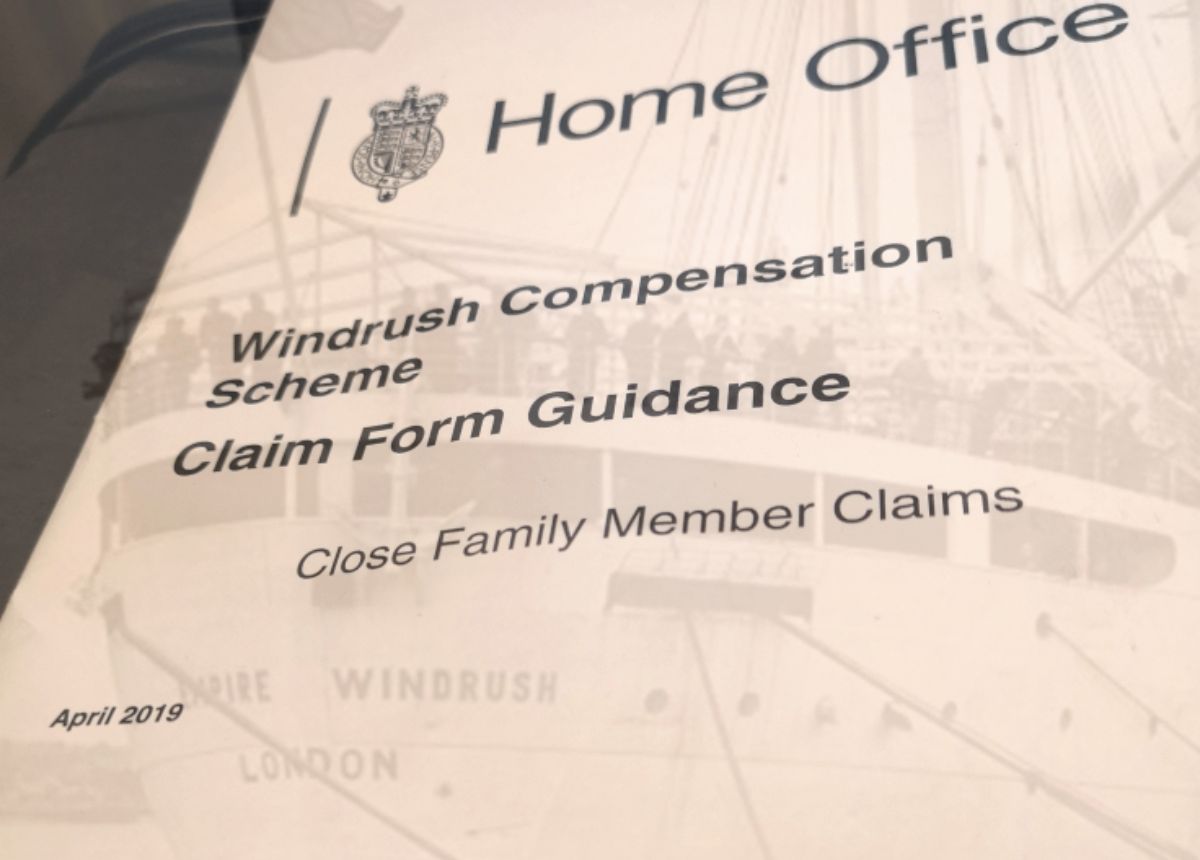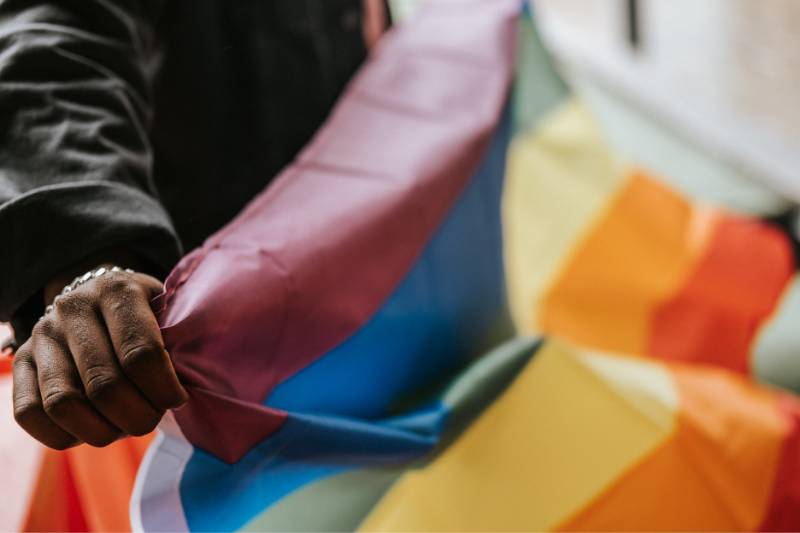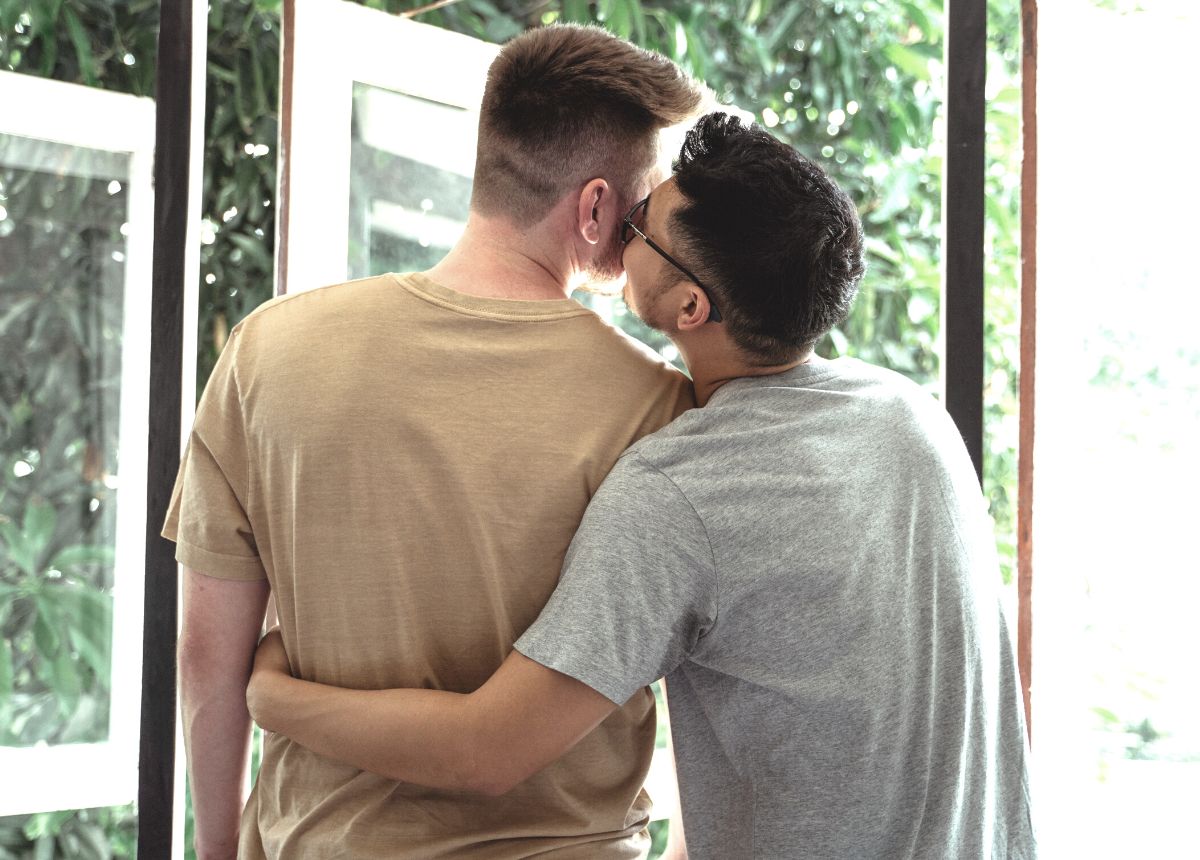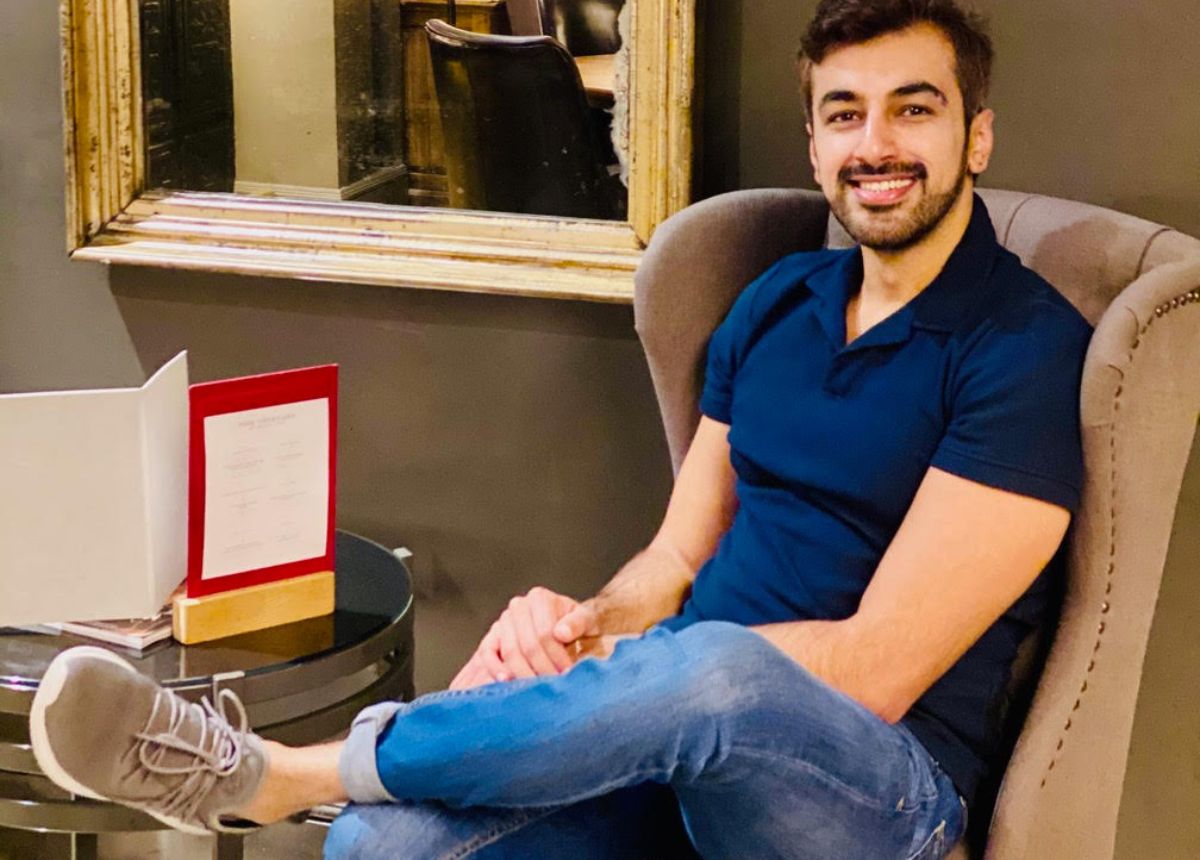Government trying to make it harder to ‘prove’ you are LGBTQI+
The Nationality and Borders Bill that is being voted on in Parliament this week will make it even more difficult for LGBTQI+ people who are seeking asylum to prove their sexual orientation or gender identity.
The charity Rainbow Migration calls on MPs to vote against the Nationality and Borders Bill, which, among other sweeping changes, will increase the standard of proof for assessing whether someone is LGBTQI+ from the internationally accepted standard of “reasonable degree of likelihood” to the higher level of “balance of probabilities”.
It is inherently difficult for anyone to prove their sexual orientation or gender identity, and even more so for those who may have spent years trying to hide the fact that they are LGBTQI+. In many cases, the only “evidence” someone has is their own testimony. They have to talk about the most personal or intimate aspects of their lives in front of a complete stranger, who then decides if they believe them or not.
Rainbow Migration’s Executive Director Leila Zadeh said, “If this change becomes law, more LGBTQI+ people in need of our protection will be refused asylum and returned to countries where they could face torture, imprisonment or death”.
Earlier in November a report by the Independent Chief Inspector of Borders and Immigration revealed Home Office productivity targets were already preventing asylum decision-makers from adequately assessing claims based on sexual orientation.
Proving that you are gay - real life example from Still Falling Short
A claimant who described how a schoolboy friendship grew into a same-sex sexual relationship when the boys were around 13 and 17 respectively was challenged for not having a date for the anniversary of the start of the relationship and being able to remember only a particular school trip as the time when the liaison started. Then, the interviewer asked whether the boys went out for a meal, or went out or to socialise, which would have been, under the circumstances, a culturally inappropriate expectation.
Unbelievable – Help us say no to raising the standard of proof!
Can you imagine someone disbelieving your sexual orientation because you have never been in a relationship? Or because you don’t look LGBTQI+?
These are just some of the challenges that LGBTQI+ people seeking asylum face in the UK. And if the Nationality and Borders Bill is passed in Parliament this week, things will become even harder for them.
There are many reasons why proving sexual orientation or gender identity is already difficult. For instance:
- The sole evidence that many people have of their sexual orientation or gender identity is their own story
- Someone’s social and cultural background may affect how easily they can talk about their sexual orientation or gender identity
- Some women only become attracted to other women later in life and face being disbelieved on this basis, particularly if they have been in relationships with men in the past
What would you say if you had to prove your LGBTQI+ identity? Could you do it if your life depended on it?
It’s difficult and humiliating for anyone fleeing persecution to have to prove they are LGBTQI+, and the last thing we should do is make it harder. Help us spread the word by sharing one of the videos below or sending us your own:
Having to “prove” that you are LGBTQI+
At present, when an LGBTQI+ person claims asylum, they have to “prove” their sexual orientation or gender identity to the satisfaction of the Home Office or judges.
They need to demonstrate that there is a “reasonable degree of likelihood” of persecution if they were returned to their country of origin.
This low standard of proof reflects the seriousness of getting this wrong – if an LGBTQI+ person is disbelieved and wrongly returned to their country of origin, their life could be at risk.
If the #AntiRefugeeBill passes, the standard of proof will be higher and people will have to prove they are LGBTQI+ “on the balance of probabilities”. More LGBTQI+ people in need of our protection will be refused asylum and returned to countries where they face imprisonment, torture or death.
Stand with all LGBTQI+ people in need of protection. Please share this video below and help us spread the word.
Signed statement: safe routes, compassion and fairness need to be at heart of Government’s approach to people seeking sanctuary
Following the tragic deaths of at least 27 people in the English Channel – including children – it is time for serious action. We cannot stand by and let this Government’s harsh rhetoric and ill-thought-out approach go unchecked.
This Government’s policy of grabbing cheap headlines and blaming the French authorities while paying them millions of pounds to build fences around the Channel ports has not worked. Now people fleeing conflict, persecution and war have paid the ultimate price. We know from the warehouses overflowing with donations for Afghan refugees that the public believes in the right to seek safety. That same public cannot stand for this.
Instead of trying to blame people seeking safety for its own failures, this Government must step up to its responsibilities and focus on saving lives.
For a start, parliamentarians must rethink the Nationality and Borders Bill. Not only will these new laws take a wrecking ball to the very principle of refugee protection, but we know they are unworkable. They will push desperate people further into the arms of smuggling gangs and will only inflame our international partners who we need to work with to ensure people seeking sanctuary can do so safely.
We also need a cast-iron commitment from this Government that it will not pursue its policies on offshoring or pushbacks, which will cause even more harm and make deaths in the Channel even more likely.
Above all, this tragedy shows how urgent it is for this Government to work with its international partners to create more routes to safety for refugees. This Government demands refugees take official routes, but for most people, these simply do not exist. Refugees are left with little option but to arrive here hidden in a plane or lorry or crammed onto a small boat.
We are calling on this Government to make a long-term commitment to:
- create a compassionate asylum system that treats all people seeking asylum in the UK with kindness and dignity
- resettle at least 10,000 refugees each year from around the world
- reinstate the Dubs Agreement to protect child refugees from exploitation
- expand family reunion so that more people can be reunited with their loved ones
- introduce a humanitarian corridor
We ask the Government to sit down with people who’ve gone through the asylum system, and their advocates, to create a new, more compassionate, and effective process which puts safety first. Now, if ever, is the time to do so.
Signed by
Barrow Cadbury Trust, Dame Sara Llewellin DBE
Ben & Jerry’s, Rebecca Baron, European Head of Activism
Refugee Action, Tim Naor Hilton, CEO
Refugee Council, Enver Solomon, CEO
Freedom From Torture, Sonya Sceats, CEO
Scottish Refugee Council, Sabir Zazai, CEO
Asylum Matters, Andrea Vukovic & Paul Hook, Co-directors
Abigail Housing, Amanda Church-Mcfarlane, Co-Chief Executive Officer
Action for Refugees in Lewisham, Sophie Wickham, Director
ACH, Fuad Mahamed, CEO
Allies for Justice, Steven Shyaka, Lived experience campaigns coordinator
Amber Film and Photography Collective Laura Laffler, Director
Art Refuge, Bobby Lloyd, CEO
Asylum Aid, Ian Kane, Legal Services Manager
Asylum Link Merseyside, Ewan Roberts, Centre Manager
Asylum Support Appeals Project
Asylum Welcome, Mark Goldring, Director
AVID (Association of Visitors to Immigration Detainees), Ali McGinley, Director
Baca, Jimmy Zachariah, CEO
Bail for Immigration Detainees, Annie Viswanathan, Director
Big Leaf Foundation, Evie Booton, Campaigns Coordinator
Birmingham City of Sanctuary, David Brown, Chair
Birmingham Schools of Sanctuary, Barbara Forbes, Coordinator
Baobab Centre For Young Survivors in Exile, Jodie Bourke, Senior Manager
Boaz Trust, Ros Holland, Chef Executive
Body & Soul, Emma Colyer, Director
Bradford City of Sanctuary, Will Sutcliffe, Chair
Breaking Barriers, Matthew Powell, CEO
Bristol Defend the Asylum Seekers Campaign, Jo Benefield, Coordinator
Bristol Reclaiming Independent Living (BRIL), Mark Williams, Founder
British Association of Social Workers, Dr Ruth Allen, Chief Executive
Bromsgrove and Redditch Welcome Refugees, Yvonne Rendell, Chair
Calais Action, Libby Freeman & Caroline Gregory, Founder
Cambridge Convoy Refugee Action Group, Catharine Walston, Chair of Executive Committee
Campaign Bootcamp, Sarah Miguel, Co-Leader
CARAS, Eleanor Brown, Director
Care4Calais, Clare Moseley, Founder
Caritas Diocese of Shrewsbury, Ben Gilchrist, CEO
Carlisle Key, Diana Vlad & Iain McNee, Housing Support Officer and Operational Manager
Channel Rescue, Kim Bryan, Co-founder
Choose Love, Cherno Jagne, COO
Citizens of the World Choir, Becky Dell and Matilda James, Musical Director and Exec Producer
City of Sanctuary Sheffield, Tom Martin, Director
City of Sanctuary UK, Sian Summers-Rees, Chief Officer
Civic Leicester, Ambrose Musiyiwa, Facilitator
Children England, Chloë Darlington, Policy and Communications Manager
Common Space Common Humanity, Dave Plumb, Coordinator
Compass Collective, Leah Gayer, Co-director
Coventry Refugee and Migrant Centre, Toni Soni, Centre Director
Curious Monkey, Zoe Connel, Project Coordinator for Arriving
Detention Action, Bella Sankey, Director
Doctors of the World, Ellen Waters, Director of Development
Donate4Refugees, Amber Bauer, Founder
ECPAT UK (Every Child Protected Against Trafficking), Patricia Durr, CEO
Equanicity, Cryton Chikoko, Co-founder
FAST (First Aid Support Team), Nynke van Dijck, Founder
Fences & Frontiers, Lewis Garland, Founder / Chair
FODI (Sunderland), Steve Newman, Chair
Good Chance Theatre, Naomi Webb, Executive Director
Govan Community Project, Traci Kirkland, Head of Charity
Greater Manchester Immigration Aid Unit, Denise McDowell, Chief Executive
Haringey Migrant Support Centre
Hastings Community of Sanctuary, Jane Grimshaw & Polly Gifford, Co-Chairs
Hay Brecon and Talgarth Sanctuary for Refugees , Ailsa Dunn, Secretary
Helen Bamber Foundation, Kerry Smith, CEO
Herne Hill Welcomes Refugees, Terry Morin, Chair
Herts for Refugees, Angus Clark, CEO
Homeless Network Scotland, Maggie Brunjes, Chief Executive
Hope for the Young, Matt Blacker, CEO
HOPE not hate, Nick Lowles, CEO
Hope Projects, Phil Davis, Director
Host Nottingham, Rebecca Kogan, Project Coordinator
Humans for Rights Network, Maddie Harris, Director/Founder
IMIX, Emma Harrison, CEO
Immigration Law Practioners’ Association, Nicole Francis , Chief Executive
Interfaith Scotland, Maureen Sier, Director
JRS UK, Sarah Teather, Director
Justice and Peace Scotland (Catholic) Bishops’ Conference of Scotland, Jill Kent
Justice First, Jason Hussein, Project Manager
Kids in Need of Defense UK (KIND UK), Katie Fennell, National Coordinator
KRAN, Dr Razia Shariff, CEO
Latin American Women’s Rights Service, Elizabeth Jiménez-Yáñez & Dolores Modern, Policy co-coordinators
Leeds Destitute Asylum-seekers Support, Jenny Willison, Trustee
Lewisham Refugee and Migrant Network, Rosario Guimba-Stewart, Chief Executive
Liberal Democrats for Seekers of Sanctuary, John Skipworth, Chair of Council
Liberty, Martha Spurrier, Director
LOSRAS (Lewes Supports Refugees), Gill Tipping, Co-Chair
Love Welcomes, Abi Hewitt, CEO / Founder
Love 146, Philip Ishola, CEO
Malvern Green Space
Methodist Church, Geoff Charlton, Local Preacher
Micro Rainbow, Sebastian Rocca, CEO
Migrant Destitution Fund, Sian Mullen, Action Group Member
Migration Mobilities Bristol, Bridget Anderson, Director
Migrants’ Rights Network, Fizza Qureshi, CEO
Migrant Voice, Nazek Ramadan, Executive Director
NACCOM, Bridget Young, Director
NATECLA, Rachel Öner, Co-Chair
Norfolk Schools of Sanctuary, Jake Rose-Brown, Founder
North East Law Centre, Rachel McPeake, Project Administrator
Nurses United UK, Anthony Johnson, Registered Nurse and Lead Organiser
O’s Refugee Aid Team, Onjali Rauf, Founder and Author
Open Aye, Becky Duncan, Director
Our Second Home, Amos Schonfield, Director
Pathways Trust, Tara Pollitt, Operations Manager
Pollination, Yasmine Balfour-Lynn, Co-Founder
Praxis, Sally Daghlian OBE, CEO
Race Equality Foundation, Jabeer Butt OBE, CEO
Rainbow Home (North East England), Alessandra Mondin, Project worker
Rainbow Migration, Leila Zadeh, Executive Director
RAMFEL, James Tullett, CEO
Reading City of Sanctuary, Maggie Filipova Rivers, Manager
Reading Refugee Support Group, Nick Harborne, CEO
RefuAid, Anna Jones, Co Founder
Refugee Action, Lizzie Hobbs, GPP Team Administrator
Refugee Education UK, Catherine Gladwell, Chief Executive
Refugee Legal Support (RLS), Efi Stathopoulou, Programmes Manager
Refugee ReSETTLEment, Paul Kelly, Project leader
Refugee support East London and Essex, Pam Derwin, Admin
Refugee Survival Trust, Elaine Cameron, CEO
Refugee Trauma Initiative, Zarlasht Halaimzai, CEO and Co-Founder
Restore (a project of Birmingham Churches Together), Jeremy Thompson, Manager
Right to Remain, Lisa Matthews
Room to Heal, Elli Free, Director
Routes, Daisy Jacobs & Leyla McLennan, Co-directors
Royal College of Nursing, Geoff Earl, Council Member (personal capacity)
Runnymede Trust, Alba Kapoor, Senior Policy Officer
Rural Refugee Network, Nadia Potts, CEO
Safe Passage, Beth Gardiner Smith, CEO
Samphire, Indre Lechtimiakyte, Legal and Migrant Support Manager
Say It Loud Club, Aloysius Salle, Executive Director
Screen Share UK, Moses Seitler, Director
Scotswood Garden, Karen Dobson, CEO
Seeking Sanctuary, Phil Kerton, Co-Director
Settle Area Refugee Support, Angie Pedley, Treasurer
Social Workers Without Borders, Naomi Jackson
Solidarity With Refugees, Ros Ereira , Director
Sophie Hayes Foundation, Red Godfrey-Sagoo, CEO
Southampton & Winchester Visitors Group, Chris Stephens, Chair of Trustees
Southampton Action, Nikki Walters, Chair
Stand for All, Daniel Sohege, Director
Stories of Hope and Home, Stephanie Neville, Project Manager
Student Action for Refugees, Emily Crowley, Chief Executive
Swindon City of Sanctuary, Nicola Wood, Charity Manager
Tees Valley of Sanctuary, Suzanne Fletcher, Housing Co-ordinator
The Cotton Tree Trust, Janet Gilbert, General Manager
The Iona Community, Robert Swinfen, Convenor of Migration & Asylum Network
The Jewish Council for Racial Equality (JCORE), Dr Edie Friedman, Executive Director
The Mercy Hub, Jeremy Cain, Coordinator
The Pickwell Foundation, Susannah Baker, Founder
The Refugee Rights Project, Izzy Hughes, Founder
The William Gomes Podcast, William Gomes, Director
the3million, Nicolas Hatton, CEO
Together with Migrant Children, Nick Watts & Jane Goldsmid, Co-Directors
Trauma Foundation South West, Judy Ryde, Founder/Clinical Director
UKCEN, Claudia Holmes, Founder
Vauxhall Community Law and Information Centre, Siobhan Taylor-Ward, Solicitor
Voices in Exile, Mel Steel, Director
Voices Without Borders, Joss Duncan & Ewa Lelontko, Co-founders
Waging Peace, Maddy Crowther & Sonja Miley, Co-Executive Directors
West Cumbria Refugee Support Network, Kelly Davis, Chair
West End Refugee Service, Hannah Barnes, Director
Women for Refugee Women, Alphonsine Kabagabo, Director
Young Roots, Jo Cobley, CEO
Doncaster Conversation Club, Jan Foster, Trustee
Skipton Town of Sanctuary, Alan Hickman, Town Councillor
Green Kordofan, Raga Gibreel, Director
Refugees for Justice, Dylan Fotoohi, Director
Entraide (Mutual Aid), Felix Kupay, Chair
South Yorkshire Migration and Asylum Action Group, Stuart Crosthwaite, Secretary
Faversham and Villages Refugee Solidarity Group, Clarissa Hanna, Chair
Kent Kindness, Jo Taylor, Chair
Harrogate district of sanctuary, Pat Ki, membership secretary
Birch Network, Dr Andrew Jolly, Chair of Trustees
FreedVoices, Chibong Lucas,
Refugee Women of Bristol, Layla Ismail, Development Manager
Making Rights Real, Clare MacGillivray, Director
St Chad’s Sanctuary CIO, Abigail Martin, Project Manager
Flintshire City of Sanctuary, Maire Greaney, Secretary & Trustee
Destitution Project Bolton, Shaheda Mangerah, Senior Caseworker for asylum seekers & refugees
D6: Culture in Transit, Clymene Christoforou, Director
Southeast Integration Network, Ruth Cape, Development Manager
Refuweegee, Selina Hales, CEO
Herefordshire City of Sanctuary, Jeff Beatty, Chair.
Windrush learnings: Not much progress toward a fairer and more compassionate asylum system
The Windrush scandal exposed systemic Home Office failures that caused financial loss and emotional distress to many people. There are significant parallels between the Windrush nightmare and the suffering of others who experience the UK asylum and immigration systems.
We have submitted our perspective on the progress that the Home Office has made against the Windrush recommendations to a parliamentary inquiry. Here’s a summary:
- Rushed and inaccessible consultation process: The New Plan for Immigration consultation ran for less than two months (24 March2021 to 6 May 2021) and stakeholders raised concerns about the inaccessibility of the consultation to those people who are in or have been through the asylum process. Attempts to include people with lived experience in the process were an afterthought and those meetings only took place after the consultation had closed. It is therefore unclear to what extent the responses were considered when drafting the subsequent Nationality and Borders Bill, which had its first reading in parliament only [insert amount of time] after the consultation period ended.
- Willingness to improve practice in LGB asylum interview training: We welcomed the Home Office consulting us on the LGB asylum interview training, which they did earlier this year.
- Raising the standard of proof isn’t in line with “a more compassionate approach”: Our concerns about the proposal in the Nationality and Borders Bill to raise the standard of proof for proving someone is LGBTQI+ have been acknowledged by this government, but we were disappointed to learn that the Home Office would only “review and update the training and guidance provided to decision-makers”. More detailed questioning will not resolve this issue.
- Risks of indirect discrimination and lack of evidence for the new Bill: The government’s Equality and Impact Assessment for the Bill agrees that there is a risk of indirect discrimination yet the only proposal is to address it is to provide “training and guidance. The Home Office already has training and guidance on different areas but this has frequently not been enough to resolve issues such as using delay in claiming asylum as a reason for disbelieving someone’s sexual orientation or gender identity. Furthermore, more monitoring data on LGBTQI+ people in the asylum system is needed.
- External views not always considered: Although the Home Office set up a stakeholder group to discuss and try to resolve the issues around access to legal advice for people seeking asylum, we don’t believe views have been taken into consideration during the consultation process and the drafting of the Nationality and Borders Bill.
- Insufficient willingness to enact positive change: We believe that there is willingness by many within the Home Office to improve, however their ability to enact positive change seems to be constrained by those more senior to them.

Home Office failing LGB asylum applicants
A new report published this week has found that Home Office targets are preventing asylum decision-makers from adequately assessing claims based on sexual orientation.
The report by the Independent Chief Inspector of Borders and Immigration reveals that an internal Home Office review in 2019 found that there had been a widespread failure to gather the information needed to enable a robust decision to be made LGB asylum claims.
The review also highlighted that claims based on sexual orientation can require an extensive interview or a longer period of analysis and reflection than other cases in order to reach a decision, but that this was being hampered by weekly productivity targets for staff.
In addition, the Chief Inspector found decision records showing a lack of consideration of the fact that not every LGB person who is seeking asylum is comfortable or able to express their emotions articulately, including to a decision-maker who they don’t know or through an interpreter.
Evidence provided by stakeholders and included in the report suggest that too often LGBTQI+ claims are held to a higher standard of proof than the “reasonable degree of likelihood”, which is required in asylum claims at the present time.
An internal review by the Home Office in 2020 had similarly concluded that improvements were needed in application of the standard of proof.
We warned that the Nationality and Borders Bill, which is making its way through parliament, will increase the standard of proof to a higher level of “balance of probabilities”, meaning that that LGBTQI+ people will face an even higher hurdle than they currently do to “prove” their sexual orientation.
Our Executive Director, Leila Zadeh said “as the Nationality and Borders Bill is discussed in parliament, this report is a timely reminder of how incredibly difficult it already is for LGBTQI+ people who are fleeing persecution to ’prove’ who they are in order to get safety in the UK”, and added, “if the Bill passes with this clause, more LGBTQI+ people will be refused asylum and face return to countries where they will be persecuted and their lives will be at risk”.
From refugee to trustee
The difference between Refugee and Asylum Seeker might not seem like much to someone on the street but for a lot of us, it is the bridge between life and death. I went through the process of asylum eight years ago and although so much time has passed since then and I have become a British citizen, the anguish and uncertainty of the entire process stays with me. It took a lot of psychological counselling and therapy to manage of the night sweats and nightmares but every now and then I get a reminder.
I recently became a trustee of Rainbow Migration, it was a very emotional albeit happy day for me. I always wanted to be part of someone else’s story and help them the way I got help. Like so many people who walk through the doors of Rainbow Migration, I was scared and anxious. I didn’t know how much to reveal. Luckily, I found out about it at the weekend so I took the entire weekend and browsed through the articles and then the message board. I read the stories of other people who’d been through the process. I felt calmer that I was in the hands of people who knew what they were doing.
It took a few weeks before I could attend an evening session and get my taster of what it would be like working with a lawyer on my case. The information I’d read earlier was already helping me. I registered myself and requested to be matched with a lawyer. I was able to afford a lawyer without Legal Aid and quickly started working with the recommended firm.
During the time I was waiting for the lawyer appointment, I started writing a very detailed personal statement starting all the way from my birth to the present day. I left nothing out. It not only helped me a lot later but it also felt somewhat cathartic and I felt a huge burden lifting off my shoulders to be able to finally say everything.
I kept attending Rainbow Migration meetings despite working with my lawyer and it gave a wealth of information not only from the lawyers but also about other things that came up with people’s questions. Once I started working with my lawyer, things started to progress quickly. I asked my friends, my ex-partner and everyone I could think of to provide letters of support and they all obliged. It was an overwhelming feeling that so many people were supporting me with this difficult process.
It was a difficult time; I was mentally numb and jaded. The uncertainty was the real downer for me. Luckily, I had finished my degree by then and took on some free online learning to keep myself busy. I couldn’t even volunteer at this time.
Finally, it was the day, after all the hard work, the seemingly endless statement editing, the back and forth with letters, collecting newspaper evidence and translation of documents, the moment of truth was here.
On the way to Croydon, I floated slightly out of my body, the prospect of detention was unbearable for me. The presence of my lawyer helped me massively. We waited and waited and waited and finally after a wait of six hours they called me, registered and gave me a registration card and I could leave with the schedule of registration every other week.
I could finally breathe; it was a real mind-bender how a government claiming to help you in the name of humanity could put you in detention when your life is at stake. I was very punctual with my fortnightly attendance at the London Bridge centre. I didn’t want to give any excuse to the Home Office to reject my case.
My second interview call came a month later and again I was prepared and this time more confident. I looked around on the internet and also asked my lawyer and prepared answers to as many questions as I could in light of my own circumstances. That timeline I had prepared really helped here.
On the day, I arrived with my lawyer with a really chunky file full of evidence, support letters and statement. My interview started and I felt the anxiety kick in but I reminded myself how much I needed this and calmed myself down. I answered all the questions in a matter of fact way with only as much detail as necessary. The interviewer did try to trick me a little by asking about the timings of the claim but it went fine with reasonable explanation. I could see my lawyer was pleased.
I returned with real hope and on 12th of December, a month later, I got a letter that I could barely open, my hands and leg shook until I saw the words ‘claim accepted’. I had to sit down to calm myself and finally I got calm enough, I started dancing and my flatmate joined me and we celebrated with a dinner.
That night I cried really hard, it was a sobering reality that I couldn’t go back to any of the places I cherished as a child, couldn’t meet anyone from my family and friends I loved dearly all because of my sexuality. I had to build my life from scratch. I buried that desolation under my pillow and never looked back.
I woke up the next morning, applied for a travel document and started looking for jobs. It has been eight years in 2020 since all that happened but I remember every bit of it so vividly. I thought life would become easier alone I got asylum but the last eight years up until I became a British citizen were a stark reminder that the struggle doesn’t end there. The Home Office rejected visas for my parents twice when they wanted to come and be my side due to surgery (they are doctors).
It is all over now though, I have a pattern in life, I do yoga, I have a successful, fulfilling career and I found my passions in life; travelling. I have been to 53 countries in the last 7 years and counting. I love writing about my experiences, you can check my blog here and YouTube channel here.
Disclaimer: This is a personal account of an asylum application made several years ago. Everyone's case and journey of applying for asylum is different. We have a guide on applying for asylum and if you have questions about asylum you can contact us for legal advice or find a lawyer independently.






